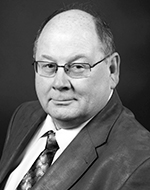Page Content
Teachers poised to be leaders in era of “me” generation
 With due respect to the old Chinese proverb, we do live in interesting times. Perhaps that is why we have growing cynicism in society, a cynicism that impacts teachers, indeed sometimes deliberately targets teachers. David Herle from the Gandalf polling group recently expressed shock at the degree of cynicism and “the frequency with which private interests are assumed to trump the public interest.”
With due respect to the old Chinese proverb, we do live in interesting times. Perhaps that is why we have growing cynicism in society, a cynicism that impacts teachers, indeed sometimes deliberately targets teachers. David Herle from the Gandalf polling group recently expressed shock at the degree of cynicism and “the frequency with which private interests are assumed to trump the public interest.”
For decades, surveys have shown high public trust in teachers — as high as 80 per cent — but a recent survey of trusted professions done for the business school at Ryerson University had teachers in ninth place behind firefighters, ambulance drivers and farmers, among others. Union leaders drew only 22 per cent trust. Sadly, this is at a time when that credibility for teachers and their associations has never been more needed.
Recent shifts in Canadian culture have created some interesting trend inconsistencies. There are three growth trends: individualization, equality and tolerance. Although the core values of our society remain strong, there is increasing left-right polarization on issues and vast amounts of rhetoric produced by both government and special interest groups, including ideological advocacy groups masquerading as independent “think tanks.”
The cultural trend that cuts across such lines is a shift toward individualization and self, as explained in the new book The Civic Culture Transformed, by political scientists Russell Dalton and Christian Welzel. After four decades, the credo of the “me” generation is firmly in place. Because public education is about values, and ultimately about distribution of resources to support values, it is affected by this shift.
Diminished credibility is perhaps one example of the fallout for teachers. While public education indeed endorses the right to hold varying beliefs, it is a collective endeavour that reinforces humanitarian, egalitarian and inclusive anti-elitist values. This has created some controversy in all provinces (e.g. class size in British Columbia, sex education in Ontario and task force composition in Alberta). The shift to a focus on individualism and self over others in fact weakens all public services including health care and education.
The outcome of the recent Alberta election appears to offer prospects for change. Still, as a wise colleague of mine once said, “Elect who you will, you get government.” And government must respond to many pressures of all society; it cannot be seen to favour the wishes of any one group.
Since the concept of favouring self is ingrained, it created little stir when a platform plank for one party in the Alberta election included greater access to private health care for those who could afford it. Public policy will be determined by what is credible to the public.
Yes, people feel a need to be selective in who they trust. Yes, information is often open to doubt. However, credibility comes not from oneself, but is granted by others, as leadership consultant Jean Kelley says in her article Enhance Your Professional Credibility. And her three key elements of credibility — values, behaviours and reputation — favour teachers.
Throughout an extended strike in 2014, B.C. teachers maintained strong public support. The long-running labour strife between the teachers and government of Ontario has not diminished respect for the quality work done by teachers. In both cases, when the teacher messages have been voiced by practicing classroom teachers as well as teacher leaders, they have been reported widely and the impact magnified. It is not rhetoric but reality. To a high degree, teachers have held their credibility and have been effective communicators.
Even as societal norms have shifted, there appears also to be an increasing willingness for people to challenge elites and to be assertive politically, as Dalton and Welzel illustrate in their book.
Such action requires information. Teachers are great providers of information and appear to be well placed to be leaders in shaping society. The poll results noted above and the inherent values clash of the dominant trends appear to suggest that the onus may need to be on information distribution by individual teachers with strong support from their association. ❚
Calvin Fraser retired in December after serving eight years as general secretary of the Canadian Teachers’ Federation. Prior to that, he served as the coordinator of Member Services with the Alberta Teachers’ Association.
|

Online extra
With a new government in place, Larry Booi of Public Interest Alberta has advice for progressive advocacy groups. See www.teachers.ab.ca.
|
